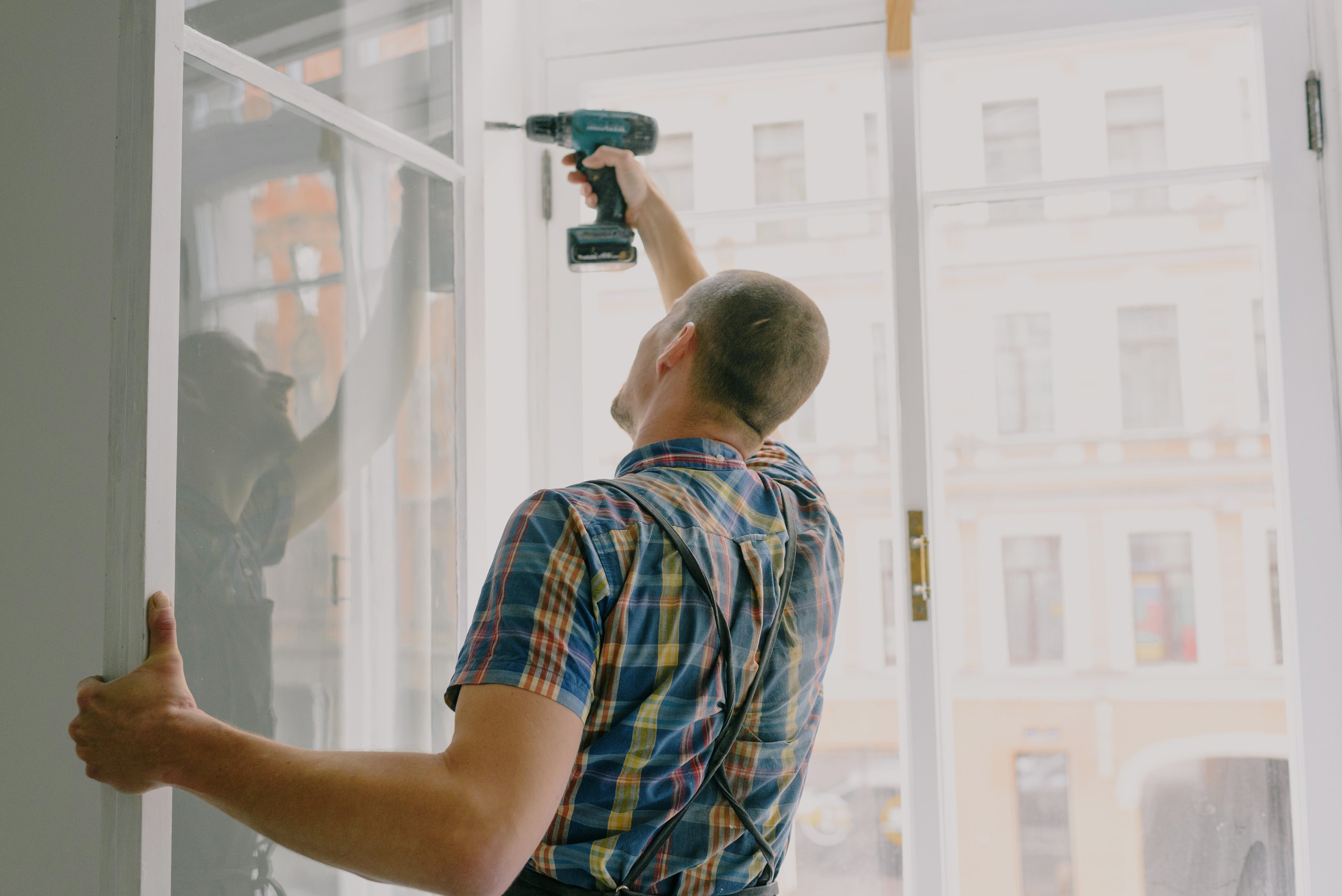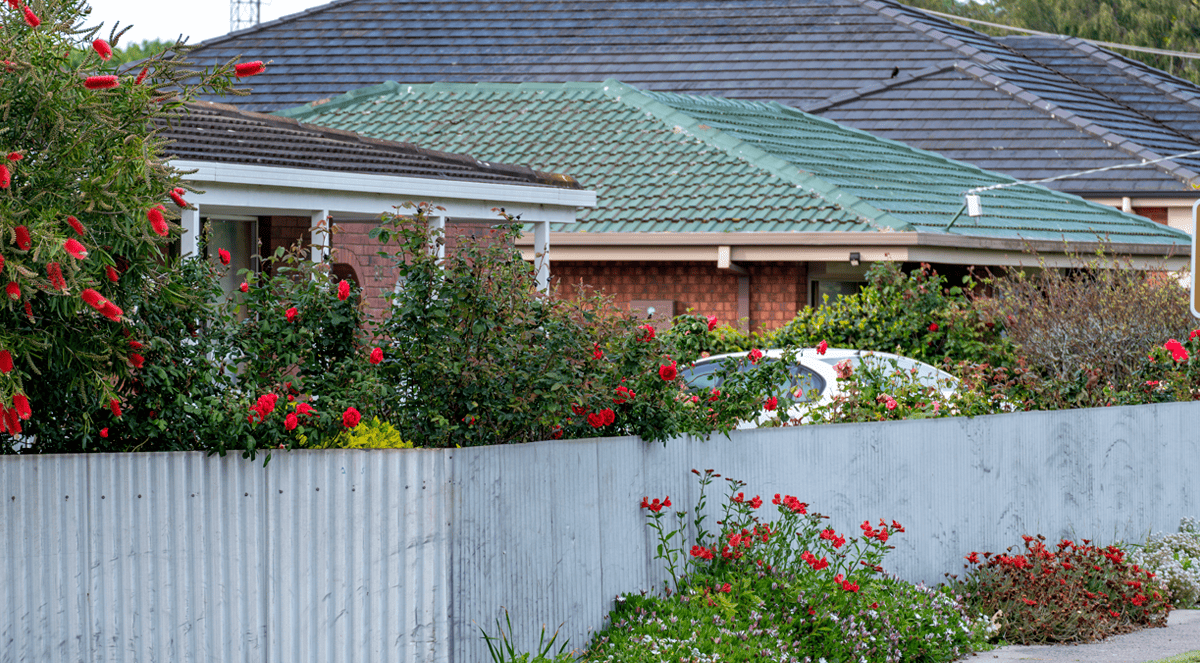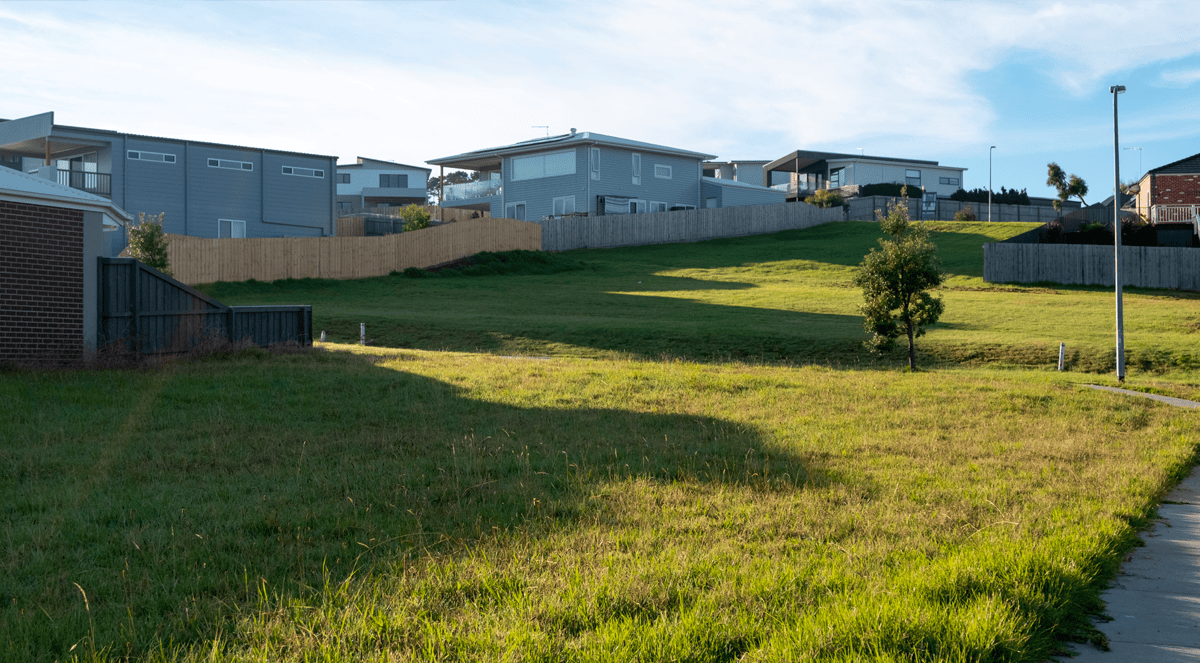Features > Property Education > Financial Advice
Boost Your Equity: 7 Value-Adding Tips for Increasing Property Value

Equity is a great thing to have. It allows you to borrow more money from the bank to expand your property portfolio, using your home as security, in place of a deposit.
The good news is that the equity in your home will naturally increase as you pay down your mortgage and your property appreciates in value over the time that you hold it.
But there are additional things you can do to increase your equity, and improve your borrowing power, in a more timely manner.
Here are seven ways to add value to your property, and in turn increase your equity.
Painting
A fresh coat of paint can work wonders in brightening a home's aesthetic, but it can also add value.
Consider how walls can give away the age of a property, with wear and tear, paint chips, and stains. But a fresh coat of paint makes a home look newer, well cared for, and can totally overhaul its appearance.
Properties built in previous decades might have been painted in outdated cream tones or boast a polarising colour scheme. In this kind of scenario, a fresh coat of white paint can modernise the property, bringing it up to pace with modern trends.
Landscaping
Australians love the great outdoors, and like to spend as much time as possible outside, especially during the warmer months. For this reason alone, a great backyard can be a deal maker or breaker when it comes to buying a home.
Investing into your backyard, and doing some solid landscaping can add value to your home, enticing buyers with the promise of enjoyable leisure time in an ambient environment.
Returfing and redesigning gardens can overhaul the vibe of your outdoor space, making the difference between a tired old backyard and one that evokes resort-style vibes.
Adding a firepit, or a designated entertaining space where families can enjoy summer night barbecues can make your property that little bit more desirable, with buyers potentially willing to pay more for an outdoor lifestyle.
Adding an extension
The number of bedrooms or lounge areas on your property has a significant impact on your property’s value.
According to the Sydney Morning Herald, as of November last year the average four bedroom house in Sydney cost $335,000 more than the standard three bedroom house.
Adding an additional bedroom to your property, if you have the means to do so, might potentially edge your property’s value, and subsequently your equity, higher.
Of course, there are things to consider with such a substantial financial output. Gathering quotes from a qualified builder, and asking questions about the approval process will help you to understand if the finances and effort are a worthwhile investment.
Also, speaking to a real estate professional can help you to understand if your specific location sees enough demand for larger houses.
Renovate the bathrooms
Bathrooms leave a lasting impression on prospective buyers, and revamping yours might be an effective way to boost your equity.
But homeowners should first consider what kind of market their home will attract.
If you own a property that falls into the upper tiers of the market, buyers will likely expect a luxury bathroom. But if your property is in the middle of the market, buyers won’t expect, or have the means to pay for, a luxury bathroom renovation.
Again, the renovation will need to add value, so do your research to consider how much a bathroom renovation will cost you, and how much value it could add to your home. Getting in touch with the correct professionals prior to making any decisions is key.
Redesign the kitchen
The kitchen is the heart of any home, and can be a large influencer of purchasing decisions.
If yours is outdated, then a redesign could be just what your property needs to boost its value, and its sale appeal when the time finally comes.
Again, this one comes down to the age of your property, and where it sits in the market. Assessing how much value you might gain from a kitchen remodel can help you set a budget, and decide your plan going forward.
New appliances, fixtures, cupboard doors and handles might be an efficient way to upgrade the aesthetics of your kitchen without breaking the bank.
If you have a bigger budget, replacing the benchtop or remodelling the kitchen to link it with an outdoor entertaining area via a servery or making it more open plan could appeal to a premium market.
Build a granny flat
Adding a granny flat makes a home enticing because of its potential to either generate additional income, or house family members.
According to a 2019 report by CoreLogic and Archistar, more than 500 thousand households in Melbourne, Sydney and Brisbane could increase their property value by a whopping 30 percent with the addition of a granny flat.
With the current rental crisis, granny flats are in high demand, offering affordable accommodation options to tenants and an extra income for landlords.
With sky high property prices, granny flats are incredibly enticing to homebuyers looking for ways to ease the mortgage burden, and can add great value to eligible properties.
Add a pool
Depending on where your property is located, and the kind of market you might be reselling into, a pool can potentially add value to your property.
Homes in warmer climates are more likely to benefit from having a swimming pool than those in colder states.
Additionally, homes that are geared towards families rather than retirees will be more likely to benefit in value from a swimming pool due to the anticipated upkeep. Older people might deem the inconvenience of maintenance not worth their efforts, while families would potentially get more use out of it.
All of these value adds have the capacity to increase your equity in your home, however they’re all subject to each individual’s circumstances. Before making any decisions, it's best to seek expert advice, from construction professionals, real estate agents, mortgage brokers and financial advisors.
This article is general in nature. Readers should always seek their own professional advice that takes into account their own personal circumstances before making any financial decisions.
Stay Up to Date
with the Latest Australian Property News, Insights & Education.




.png?width=292&height=292&name=Copy%20Link%20(1).png)
 SIGN UP FOR FREE NEWSLETTER
SIGN UP FOR FREE NEWSLETTER





%20Scott%20Kuru%20DPU%20148.jpg?width=1920&height=1080&name=Australia%20Is%20on%20the%20Brink%20of%20History%E2%80%99s%20Worst%20Mortgage%20Default%20Crisis%20(Housing%20Crash%20Inevitable)%20Scott%20Kuru%20DPU%20148.jpg)

%20Scott%20Kuru%20DPU%20147.jpg?width=1920&height=1080&name=RBA%20Warns%20Inflation%20Has%20Pushed%20Australia%20Into%20Household%20Recession%20(Millions%20Face%20Pay%20Cuts%20in%202026)%20Scott%20Kuru%20DPU%20147.jpg)
%20Scott%20Kuru%20DPU%20145.jpg?width=1920&height=1080&name=Senate%20Inquiry%20Forced%20the%20RBA%20to%20Admit%20the%20Housing%20Crisis%20Will%20Never%20Be%20Fixed%20(It%20Was%20All%20a%20Lie)%20Scott%20Kuru%20DPU%20145.jpg)



%20Scott%20Kuru%20DPU%20141.jpg?width=1920&height=1080&name=The%20Senate%20Just%20Exposed%20Australias%20Biggest%20$80%20Billion%20Housing%20Fraud%20(Inquiry%20Launched)%20Scott%20Kuru%20DPU%20141.jpg)




%20Scott%20Kuru%20DPU136.jpg?width=1920&height=1080&name=Aussies%20Just%20Got%20Hit%20With%20Double%20Taxes%20on%20Everything%20(This%20Has%20Gone%20Too%20Far)%20Scott%20Kuru%20DPU136.jpg)


%20Scott%20Kuru%20DPU%20133.jpg?width=1920&height=1080&name=JUST%20IN%20Something%20Major%20Just%20Flipped%20Australia%E2%80%99s%20Property%20Market%20for%202026%20(No%20One%20Saw%20This%20Coming)%20Scott%20Kuru%20DPU%20133.jpg)


.jpg?width=1920&height=1080&name=Rental%20Prices%20At%20Record%20Highs%20And%20Vacancy%20Rates%20At%20All%20Time%20Lows%20(New%20Data%20Reveals).jpg)
%20%20DPU%20EP%2014.jpg?width=1920&height=1080&name=Investors%20Shutting%20Out%20First%20Home%20Buyers%20(Investors%20At%20Record%20Highs)%20%20DPU%20EP%2014.jpg)

.jpg?width=1920&height=1080&name=Darwins%20Property%20Market%20Boom%20or%20Dangerous%20Gamble%20(REVEALED).jpg)

.jpg?width=1920&height=1080&name=The%20RBA%E2%80%99s%20Rate%20Cut%20Could%20Explode%20House%20Prices%20(Here%E2%80%99s%20Why).jpg)








.jpg?width=1920&height=1080&name=Warning%2c%20You%20Might%20Be%20Facing%20Higher%20Taxes%20Soon%20(1).jpg)




.png?width=1920&height=1080&name=Rate%20Drops%20Signal%20BIGGEST%20Property%20Boom%20in%20DECADES%20(1).png)

.jpg?width=1920&height=1080&name=Labor%20vs%20Liberal%20These%20Housing%20Policies%20Could%20Change%20the%20Property%20Market%20Forever%20(1).jpg)
.jpg?width=1920&height=1080&name=QLD%20Slashes%20Stamp%20Duty%20Big%20News%20for%20Investors%20%26%20Home%20Buyers%20(1).jpg)
.jpg?width=1920&height=1080&name=Trump%20Just%20Slapped%20Tariffs%20%E2%80%93%20Here%E2%80%99s%20What%20It%20Means%20for%20Australia%20(1).jpg)
.jpg?width=1920&height=1080&name=Federal%20Budget%202025%20More%20Debt%2c%20No%20Housing%20%E2%80%93%20Here%E2%80%99s%20What%20You%20Need%20to%20Know%20(1).jpg)
.jpg?width=1920&height=1080&name=Australias%20Housing%20Crisis%20is%20about%20to%20get%20MUCH%20Worse%20(New%20Data%20Warns).jpg)
%20(1).jpg?width=1920&height=1080&name=Australias%20RENTAL%20CRISIS%20Hits%20ROCK%20BOTTOM!%20(2025%20Update)%20(1).jpg)
%20(1).png?width=1920&height=1080&name=Is%20Adelaide%20Still%20a%20Good%20Property%20Investment%20(2025%20UPDATE)%20(1).png)
.jpg?width=1920&height=1080&name=RBA%20Shocks%20with%20Rate%20Cuts!%20What%E2%80%99s%20Next%20for%20Property%20Investors%20(1).jpg)
%20(1).jpg?width=1920&height=1080&name=I%20Predict%20The%20Feb%20Rate%20Cut%20(My%20Price%20Growth%20Prediction)%20(1).jpg)
.png?width=1920&height=1080&name=Why%20Property%20Prices%20Will%20Rise%20in%202025%20Market%20Predictions%20(1).png)
.jpg?width=1920&height=1080&name=Why%20Investors%20Are%20Choosing%20Apartments%20Over%20Houses%202%20(1).jpg)
.jpg?width=1920&height=1080&name=Why%20Rate%20Cuts%20Will%20Trigger%20A%20Property%20Boom%20(1).jpg)
.jpg?width=1920&height=1080&name=Retire%20On%202Million%20With%20One%20Property%20(Using%20SMSF).jpg)
.jpg?width=1920&height=1080&name=4%20Reasons%20Why%20You%20Should%20Invest%20in%20Melbourne%20Now%20(1).jpg)
%20(1).jpg?width=1920&height=1080&name=Old%20Property%20vs%20New%20Property%20(Facts%20and%20Figures%20Revealed)%20(1).jpg)
%20(1).jpg?width=1920&height=1080&name=Will%20The%20New%20QLD%20Govt%20Create%20a%20Property%20Boom%20or%20Bust%20(My%20Prediction)%20(1).jpg)
%20Scott%20Kuru%20(1).jpg?width=1920&height=1080&name=Inflation%20Hits%20Three-Year%20Low%20(Will%20RBA%20Cut%20Rates%20Soon)%20Scott%20Kuru%20(1).jpg)
.jpg?width=1920&height=1080&name=How%20to%20Buy%20Investment%20Property%20Through%20SMSF_%20The%20Ultimate%20Guide%20(1).jpg)
.jpg?width=1920&height=1080&name=Victoria%20Slashes%20Stamp%20Duty%20Melbourne%20Set%20to%20Boom%20Scott%20Kuru%20(1).jpg)
.png?width=1571&height=861&name=Are%20Foreign%20Buyers%20Really%20Driving%20Up%20Australian%20Property%20Prices%20(1).png)
.jpg?width=1920&height=1080&name=The%20Single%20Factor%20That%20Predicts%20Property%20Growth%20Regions%20(1).jpg)
%20Scott%20Kuru%20(1).jpg?width=1920&height=1080&name=My%20Prediction%20On%20Rates%20%26%20Negative%20Gearing%20(Market%20Crash)%20Scott%20Kuru%20(1).jpg)

-1.png?width=1920&height=1080&name=Major%20Banks%20Cut%20Rates%20Will%20RBA%20Follow%20Suit%20(Sept%20Rate%20Update)-1.png)
%20Scott%20Kuru-1.png?width=1920&height=1080&name=Rate%20Cut%20Coming%20What%20New%20Zealands%20Move%20Means%20for%20Australia%20(Sept%20Prediction)%20Scott%20Kuru-1.png)
%20(1).jpg?width=1920&height=1080&name=Buy%20when%20the%20interest%20rates%20are%20high!%20(Why%20you%20must%20buy%20now!)%20(1).jpg)
.jpg?width=1920&height=1080&name=Carms_Revised%20Taxes%20Due%20Aug%209%20YT%20Thumbnail02%20(1).jpg)
.jpg?width=1920&height=1080&name=Carms_Too%20Little%20Too%20Late%20Aug%207%20YT%20Thumbnail01%20(1).jpg)









.jpg?width=1920&height=1080&name=Carms_Rate%20Drop%20In%20July%20Jun%2010%20YT%20Thumbnail02%20(1).jpg)
.jpg?width=1920&height=1080&name=Carms_Own%20a%20Property%20V6%20Jun%205_YT%20Thumbnail%20(1).jpg)









.png?width=1920&height=1080&name=Artboard%201%20(3).png)






.jpg?width=1920&height=1080&name=YT%20thumbnail%20%20(1).jpg)


